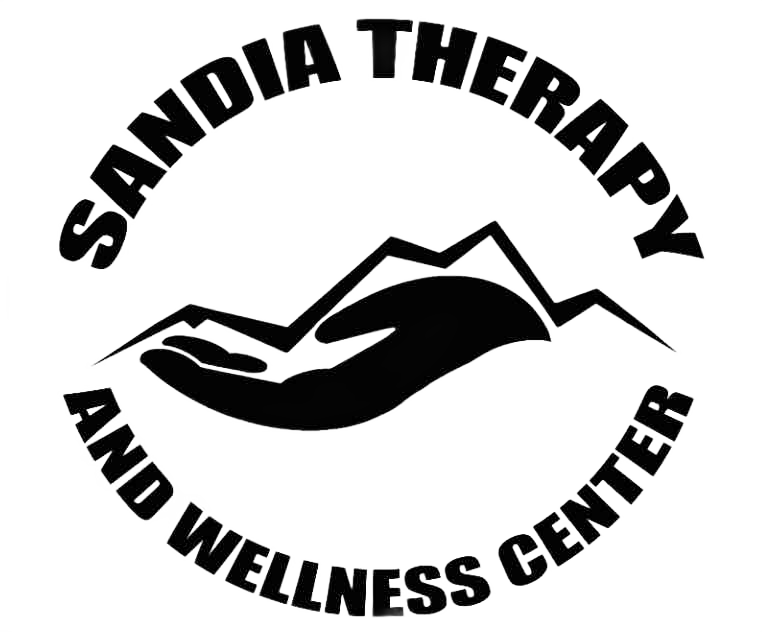Trauma & PTSD Therapy and Counseling in Albuquerque, NM
Sandia Therapy and Wellness Center provides trauma-informed care to support healing from PTSD and past experiences.
Trauma and PTSD can affect how you feel, think, and connect with others. At Sandia Therapy and Wellness Center in Albuquerque, our licensed therapists and counselors offer trauma-informed therapy using EMDR, CBT, DBT-informed practices, and other evidence-based approaches. We provide a safe, judgment-free space both in person and online, where you can process difficult memories, build resilience, and move toward healing. Whether you're dealing with recent trauma or long-standing pain, we’re here to help you take meaningful steps forward.
What the Experts Say About Trauma & PTSD
US Department of Veterans Affairs: PTSD
It's normal to have upsetting memories, feel on edge, or have trouble sleeping after a traumatic event. At first, it may be hard to do normal daily activities, like going to work, going to school, or spending time with people you care about. But most people start to feel better after a few weeks or months.
If it's been longer than a few months and you're still having symptoms, you may have PTSD. For some people, PTSD symptoms may start later on, or they may come and go over time.
Click
here
to learn more on the VA website.
SAMHSA, PTSD
Post-traumatic stress disorder (PTSD) is a real disorder that develops when a person has experienced or witnessed a scary, shocking, terrifying, or dangerous event.
These stressful or traumatic events usually involve a situation where someone’s life has been threatened or severe injury has occurred. Children and adults with PTSD may feel anxious or stressed even when they are not in present danger.
Click
here
to learn more on the SAMHSA website.
NIH, PTSD
Post-traumatic stress disorder (PTSD) is a disorder that develops in some people who have experienced a shocking, scary, or dangerous event.
It is natural to feel afraid during and after a traumatic situation. Fear is a part of the body’s “fight-or-flight” response, which helps us avoid or respond to potential danger. People may experience a range of reactions after trauma, and most people recover from initial symptoms over time. Those who continue to experience problems may be diagnosed with PTSD.
Click
here
to learn more on the NIH website.
Healing After Trauma: Common Questions About Trauma & PTSD
Trauma can leave a lasting impact, whether or not it leads to PTSD. These questions offer insight into symptoms, causes, and how therapy in Albuquerque can help you move forward with care and support.
What’s the difference between trauma and PTSD?
Trauma is the emotional response to a distressing or life-altering event. PTSD, or post-traumatic stress disorder, is a condition that can develop when trauma symptoms last longer than expected and begin to interfere with daily life. Not everyone who experiences trauma develops PTSD.
What kind of trauma causes PTSD?
PTSD can be caused by many types of trauma, including abuse, accidents, natural disasters, violence, or sudden loss. What’s traumatic for one person may not be for another. At Sandia Therapy and Wellness Center in Albuquerque, we offer therapy that helps you process and heal from painful experiences.
What are the 7 symptoms of PTSD?
Common PTSD symptoms include:
- Flashbacks or unwanted memories
- Nightmares
- Avoiding reminders of the event
- Feeling on edge or easily startled
- Trouble sleeping
- Negative thoughts or mood changes
- Feeling numb or disconnected
Therapy helps you work through these symptoms and regain a sense of safety.
How do you heal from past trauma?
Healing takes time and support. Trauma therapy often includes talking through your experience, learning grounding techniques, and rebuilding a sense of trust and safety. You're not alone—counseling can help guide your healing process.
Can I have trauma but not PTSD?
Yes. Many people carry emotional wounds from trauma without meeting the criteria for PTSD. Even if you don’t have a diagnosis, therapy can still help you process those experiences and find relief.
Make an Appointment
Click below to schedule with one of our therapists in Albuquerque, NM.
More services at Sandia Wellness and Therapy Center
- ADHD
- Anxiety
- Bipolar Disorder
- Depression
- Grief and Loss
- LGBTQIA+ Affirming Therapy and Counseling
- Neurodiversity (Autism Spectrum Disorder)
- Panic Disorder
- Stress Management
- Talk Therapy
- Eye Movement & Reprocessing (EMDR)
- Dialectical Behavior Therapy (DBT)
- Compassionate Inquiry Therapy
- Accelerated Experiential Dynamic Psychotherapy (AEDP)
- Trauma-Focused Cognitive Behavioral Therapy (TF-CBT)
- Exposure Therapy
- Cognitive Behavioral Therapy (CBT)
- Interventions For Overwhelming Emotions & Relationship Issues
